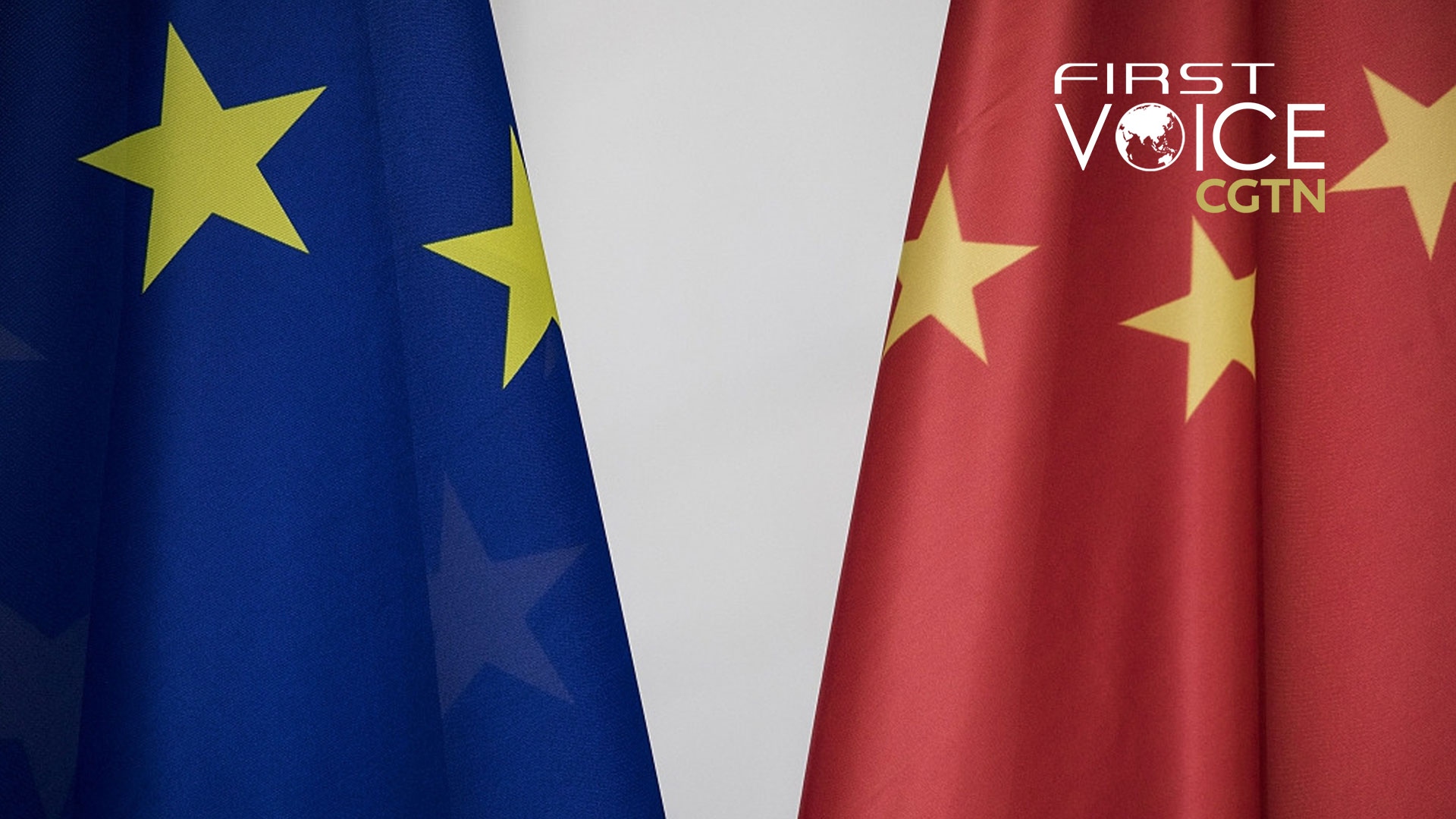
Editor's note: CGTN's First Voice provides instant commentary on breaking stories. The daily column clarifies emerging issues and better defines the news agenda, offering a Chinese perspective on the latest global events.
Despite the fact that the European Union (EU) advocated and sought out the Comprehensive Investment Agreement (CAI) with China, European politicians are now killing it to appease the United States.
On May 4, European Trade Commissioner Valdis Dombrovskis said the current environment was "not conducive" to move forward with it, prompting a media storm saying that the deal had been "suspended" or "put on ice" by the EU. Then, in an ostensible walk-back of the statement, the EU released a statement saying that the commissioner's words had been taken out of context, but "the ratification process of the (deal) cannot be separated from the evolving dynamics of the wider EU-China relationship" while making it clear that the ratification will depend on how the situation surrounding China's sanctions on European Parliament members evolves.
More words, same message: The deal is now on shaky ground.
Brussels has readily allowed the United States to drive a wedge in its relationship with China over this matter, and erroneously assumed that they could "have their cake and eat it too" – reaping the rewards of market access with China but still acting alongside the U.S. to undermine China's sovereignty.
In the final weeks of the Trump administration, the incoming Biden administration signaled its displeasure to the pending agreement. National Security Advisor Jake Sullivan responded to the news of the agreement with a tweet on December 22 last year, saying, "The Biden-Harris administration would welcome early consultations with our European partners on our common concerns about China's economic practices." The message was crystal clear. The Biden administration is not happy with the EU seeking an independent deal with China, one that gives European firms more access to China's market.

Emin (2nd L), a member of the Uygur ethnic group, chats with his neighbors in Tacheng City, northwest China's Xinjiang Uygur Autonomous Region, April 2, 2020. /Xinhua
Emin (2nd L), a member of the Uygur ethnic group, chats with his neighbors in Tacheng City, northwest China's Xinjiang Uygur Autonomous Region, April 2, 2020. /Xinhua
Of course, the issue that was being used from the beginning to drive a wedge and undermine the deal was Xinjiang Uygur Autonomous Region. The region is increasingly being weaponized as atrocity propaganda by the United States for strategic gain in raising the costs of engagement with China, making every single deal controversial and creating political space for opposition on the grounds of human rights, blocking further economic interactions between China and Western countries. The Trump administration, in its final days in office, claimed the situation in Xinjiang a "genocide," boxing the Biden White House into accepting it and carrying the baton forward.
The Biden administration subsequently sought a coordinated sanctions spree against China on this matter. Despite Europe having placed huge political capital on reaching the CAI and maintaining a stable relationship with China, European ministers made the strategic mistake of bowing to American pressure and agreed to coordinate. Then, the world saw EU following the Americans in announcing sanctions on China, based on totally fabricated "truth" concerning Xinjiang. China, however, would never compromise national sovereignty and security for market or business. The EU move was responded with retaliatory sanctions from China, a strong signal to the EU that there would be costs if it pursues such a wrong path.
Europe then played the victim. Many politicians and commentators bemoaned China's sanctions against Europe as "unacceptable," discounting the context that they were reciprocal actions. What came next were voices in European Parliament saying that the CAI should not be ratified.
This begs the question: What does the EU want? This is not stable or coherent diplomacy. It cannot demand market access and reciprocity from China on one hand, but then engage in anti-China actions on the other and not expect a response. Actions have consequences. This is not the 19th century whereby European powers could trample on China's sovereignty while exploiting its market. And kowtowing to the American agenda on China ultimately harms the EU's prosperity, strategic autonomy and independence. The United States is more than happy to ensure that European companies do not get better privileges than their own in China.
If Europe wants economic development and business access, it should not be going along with the U.S.' anti-China policies and then tilt back and forth hoping that it would offend no one. It is a grave miscalculation to put the CAI in a politically heightened situation and tie its fate to false accusations and an aggressively anti-China agenda. If the CAI is dead, it is solely because European politicians have killed it.
(If you want to contribute and have specific expertise, please contact us at opinions@cgtn.com.)

